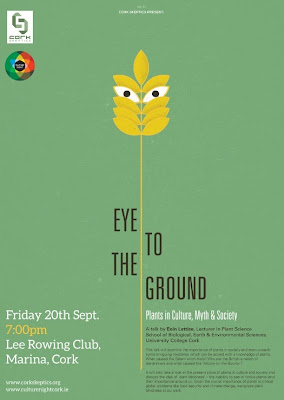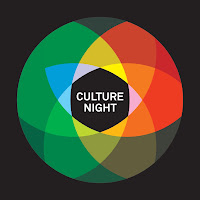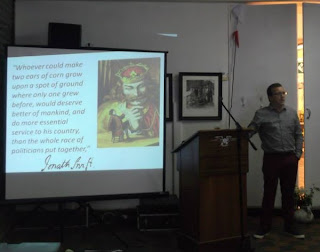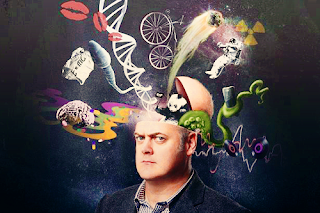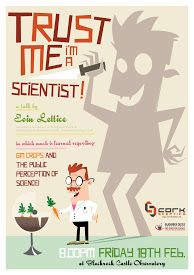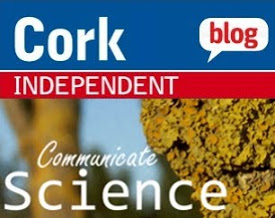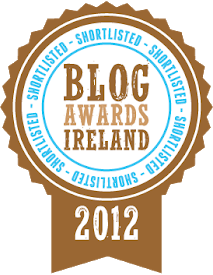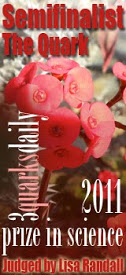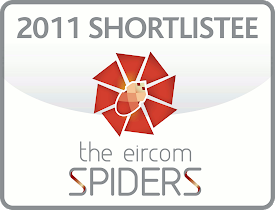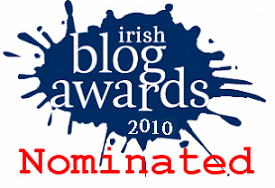Eye to the Ground
Friday 20th September is Culture Night in Ireland and all around the country, people will get to see behind closed doors, hear beautiful music, see fantastic art or visit a museum out of hours.
In conjunction with Cork Skeptics, I'll be giving a talk on culture night on the importance of plants to society and culture. The talk is entitled: Eye to the Ground: Plants in Culture, Myth and Society.
As we know, humans exist because plants exist. Plants have shaped our world, allowing animal life to evolve and they continue to have an overriding influence on our society. From the food we eat, the medicines we take, the beer we drink and the clothes we wear; plants make life possible on Earth.
Indeed, Ireland has built two of its largest industries - agriculture and tourism - on its green image
In this talk, I will examine the importance of plants in society and even unearth some intriguing mysteries which can be solved with a knowledge of plants. What caused the Salem witch trials? Why are the British a nation of tea-drinkers and what caused the ‘Mutiny on the Bounty’?
I’ll discuss the present place of plants in culture and society and discuss the idea of ‘plant blindness’ - the inability to see or notice plants (and their importance) around us.
Given the crucial importance of plants to critical global problems like food security and climate change, we ignore plant blindness at our peril.
This talk is free to attend and open to everyone. It starts at 7pm on Friday 20th September, 2013 and takes place at the Lee Rowing Club on The Marina in Cork City, near Pairc Ui Chaoimh. Note: this is a change from the usual Cork Skeptics venue.
For more details and a map to the venue, see the Culture Night Cork website.
In conjunction with Cork Skeptics, I'll be giving a talk on culture night on the importance of plants to society and culture. The talk is entitled: Eye to the Ground: Plants in Culture, Myth and Society.
As we know, humans exist because plants exist. Plants have shaped our world, allowing animal life to evolve and they continue to have an overriding influence on our society. From the food we eat, the medicines we take, the beer we drink and the clothes we wear; plants make life possible on Earth.
Indeed, Ireland has built two of its largest industries - agriculture and tourism - on its green image
In this talk, I will examine the importance of plants in society and even unearth some intriguing mysteries which can be solved with a knowledge of plants. What caused the Salem witch trials? Why are the British a nation of tea-drinkers and what caused the ‘Mutiny on the Bounty’?
I’ll discuss the present place of plants in culture and society and discuss the idea of ‘plant blindness’ - the inability to see or notice plants (and their importance) around us.
Given the crucial importance of plants to critical global problems like food security and climate change, we ignore plant blindness at our peril.
This talk is free to attend and open to everyone. It starts at 7pm on Friday 20th September, 2013 and takes place at the Lee Rowing Club on The Marina in Cork City, near Pairc Ui Chaoimh. Note: this is a change from the usual Cork Skeptics venue.
For more details and a map to the venue, see the Culture Night Cork website.

